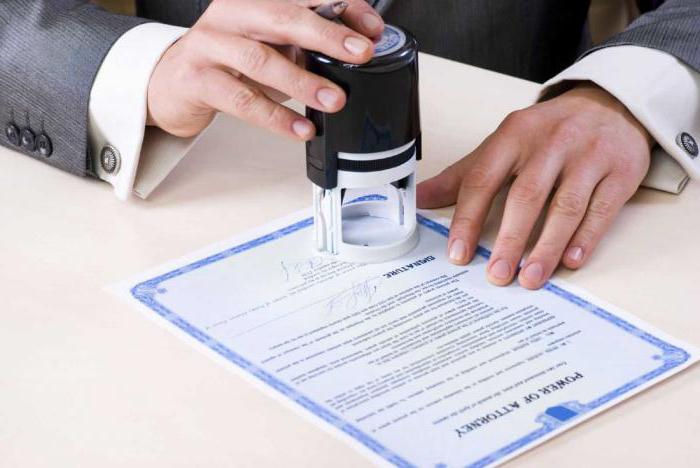A notarial transaction is a legal operation that is carried out in the prescribed form. What does this mean? This procedure is subject to transactions for which, according to the legislation, a notarial form for their implementation is established.
In more detail, we will focus on a detailed consideration of the concept of a notarial transaction. Also, we will talk about the sale and acquisition of real estate, about possible risks during registration.
Mandatory notarial transactions
This form of documents is required in the following cases:
- Any transactions that are carried out with real estate. In this case, the property must belong to the seller or donor. An exception is property included in a unit investment fund. Another exception is the registration for the alienation of land shares.
- Procedures that are associated with the disposal of real estate under the conditions of guardianship.
- Any transactions involving the sale of real estate owned by a minor citizen or legally incompetent person.
More about deals
So, in this regard, we are talking about the following options for transactions:
- Donation or sale of any share to the owner. When donating, the person to whom they give must pay a tax of thirteen percent. Such a tariff is relevant for residents. As for non-residents, they make thirty percent payment from the market value of the share that was donated. In the event that the alienation is performed according to the purchase and sale document, relations with the tax authority arise directly from the seller.
- Giving a share to an unauthorized person. The consent of the co-owners in such a situation is absolutely not required. But the notary will check if the deal is feigned. For example, he can reject a gift of a small share as a sham transaction in order to avoid the need for the co-owners to refuse the right to priority purchase of the alienated share.

- Purchase and sale of a stake in favor of an unauthorized person. Alienation in this situation is carried out on the condition that absolutely all the co-owners refused to acquire the alienated share and performed it in a notarial form. In this case, rejections are accepted from all owners according to the extract from the unified register of real estate.
Purchase and sale of real estate: notarial transaction
The price of real estate implies the buyer's obligation to verify the purity of the transaction. As part of the implementation of such verification, they request information from a single registry. A list of persons who are registered in the house or apartment is also established. In addition, the authorization of the seller and other aspects are checked. Further, both parties must agree on a price and only after that proceed with the drafting of documents of a notarized real estate purchase and sale transaction.
How necessary is a preliminary agreement?
Before signing the main agreement, the parties have the right to draw up a preliminary agreement, which will contain the conditions for the subsequent conclusion of the upcoming transaction. This stage, in addition, involves the preparation of a set of papers required for notarial support. It should be said that as a notarial transaction, the sale of shares of real estate should also be formalized.
What about the deposit?
Often at this stage, the buyer makes a deposit. They issue security in different ways, sometimes this happens in the form of a preliminary contract. The court does not have a unanimous opinion on whether it is permitted to do so. For this reason, in order to avoid unnecessary disputes, the deposit is best made out in a separate order. Notarial transactions with shares must be drawn up in an appropriate manner. This was legally approved by the Federation Council.
It is important to note that if the term of the main document expires, and the procedure for the return of the pledge has not been established, then the buyer will have to return his money through the court. Another option is the compulsion to conclude a basic contract.
Specialist help
The next step is to draw up a basic agreement by a notary. Both parties have the right to check the text of the agreement, and also, if required, to make corrections to it. Particular attention must be paid to liability that exists for violation of established obligations. These obligations consist in the fact that the functions of a specialist in the framework of a notarized transaction for the sale of an apartment or other real estate are reduced to ensuring that the agreement complies with the requirements of the law and is not canceled by the court in situations of contest.
At whose expense the execution of the transaction?
The contract should determine who pays for the notarial transaction when selling real estate. Costs are determined by agreement of both parties. The fee for these services can be distributed evenly or completely transferred to the buyer.
The parties sign the agreement in the presence of a notary. After that, the contract with the package of documents is sent for state registration. Some notaries offer services for sending a package of documents in electronic form on their own. This way of contacting significantly saves time on both sides, reducing the processing time of the request by the registry.
What documents are required for a real estate agreement?
For notarization of a transaction, the following papers may be required:
- Preliminary agreement, which will include the main terms of the transaction.
- All real estate documents, on the basis of which the seller received the right of ownership, for example, a certificate and an extract from a single register.
- Consent of the spouse to the sale, as well as to the purchase of the person who intends to purchase the property.
- The permission of the guardianship authorities if the owner of the property is a minor.
- Papers that confirm receipt by co-owners of offers to sell shares. This is relevant if the transaction involves shared ownership.
- Certificate of persons who are registered in this apartment or house, as well as a house book.
- A document that will confirm the absence of any debt for utilities.
- A maternal certificate along with an extract from the personal account of its holder. This is required in cases where family capital funds are used.
- Credit and mortgage agreements in the event that borrowed funds are used.
- Certificates and agreements for the use of budget funds.

All of the above options for documents should be provided in copies, as well as in originals, to certify the authenticity of a notarized real estate transaction.
Notarization: risks
Despite the notarization procedure, both parties still have some risks. The fact is that the process of registering a notarized transaction for the sale of an apartment or other real estate is limited to the drafting of an agreement that is difficult to recognize as contrary to applicable law. But the formulations used are far from always successful from the point of view of the documentary security of the parties.
One of the risks is the lack of an established procedure in the calculations. This aspect is extremely important, since the value of real estate is always very high. The settlement procedure itself actually determines which party is responsible for the cash. In the event that the standard phrase is indicated in the text of the document: “settlements between both parties were completed in full before the conclusion of the contract”, risks may arise for the seller.
In a situation in which the money is not actually paid, and the transfer of ownership is registered, the buyer has the right not to pay the seller, as he has already received the property, and according to the agreement, he already paid absolutely all the money for it.
Another risk is the fact that there is no deed of transfer along with its inclusion in the text of the contract, while the actual transfer of real estate is carried out after registration. In such a situation, there is a risk of damage to property that is directly borne by its buyer. He can no longer make any demands on the quality of the purchased object due to the fact that, by signing the contract, he accepted the object.
Unforeseen difficulties
The next risk is the imperfection of the notarization procedure itself. This minus consists in the fact that when certifying the transaction, the parties are left alone with the notary. The presence of other consultants is often not welcomed or even approved. All this as a result leads to the fact that the conditions agreed upon by both parties do not change for the better. As a result, buying and selling real estate through a notary public does not make it easier, but, on the contrary, significantly complicates the life of both the seller and the buyer.
And finally, the last risk is errors in the agreement made by technical experts, who are mainly notary assistants. Due to the presence of any errors, such an agreement simply will not go through further state registration.
Thus, notarization is necessary when making transactions with shares, and in addition, with the participation of minors and guardians. In other situations, notarization is carried out exclusively at the personal request of all parties to the agreement. The cost of such a service depends on the price of the document; in addition, it includes payment for technical services. The transfer of property rights according to a document certified by a notary takes a small amount of time, but does not guarantee the absolute frequency of the transaction, since there are always risks that must be taken into account before signing documents so that you do not have to go to court later.